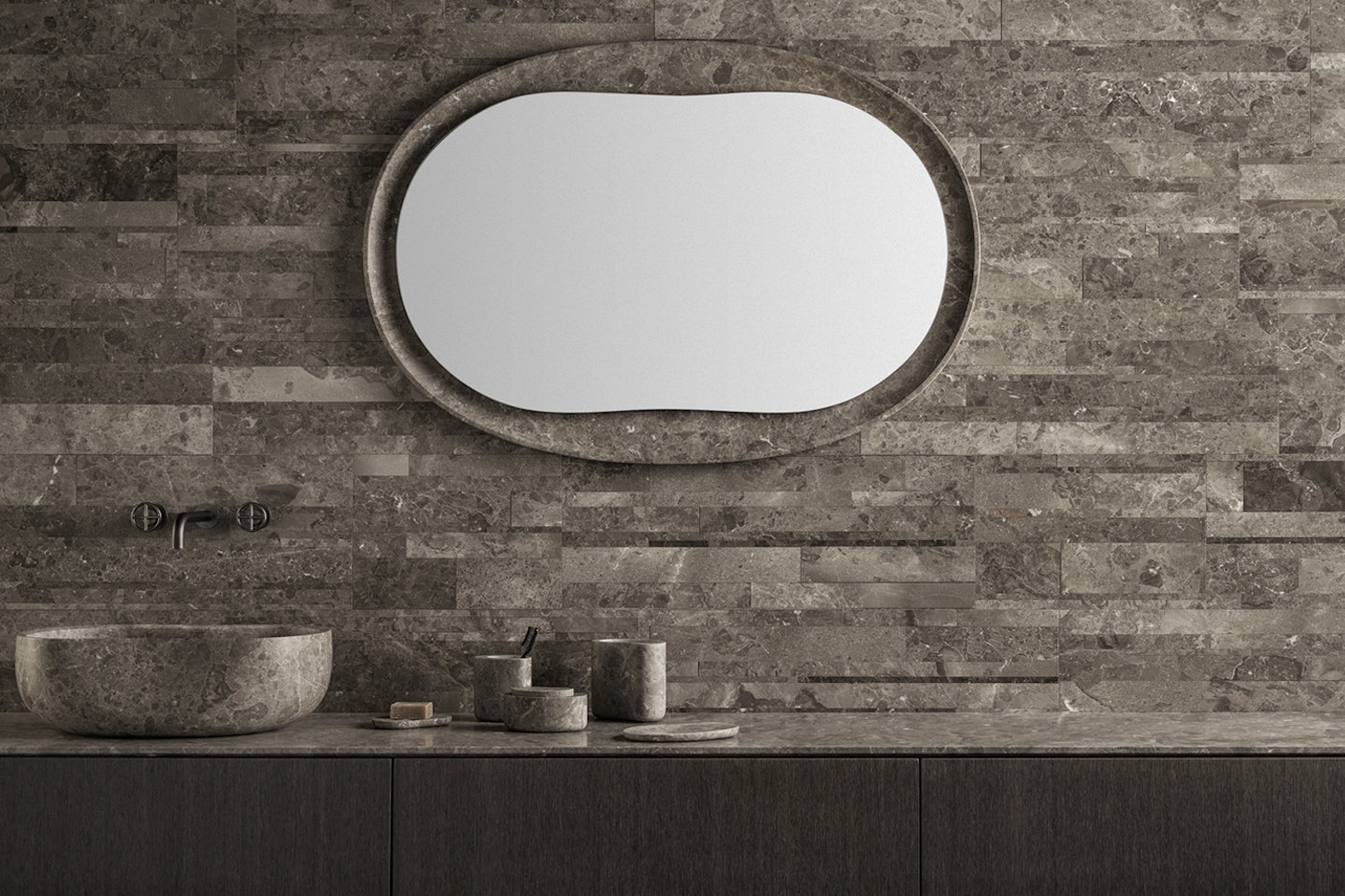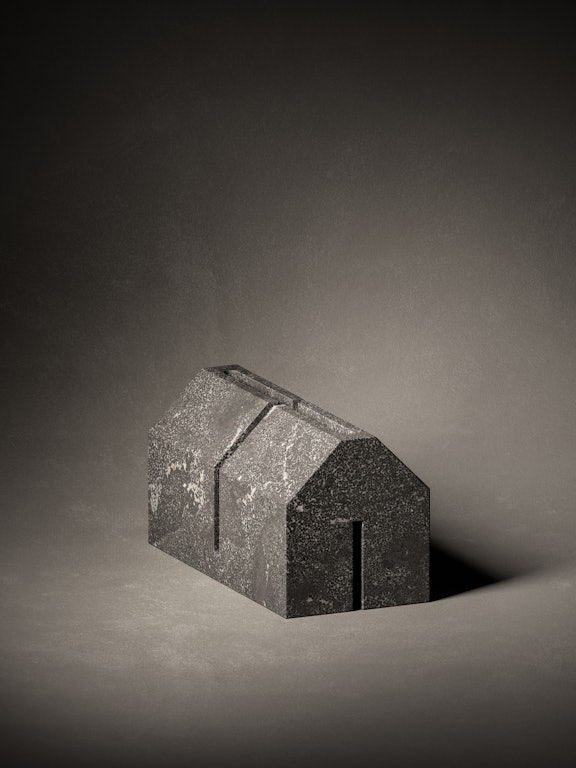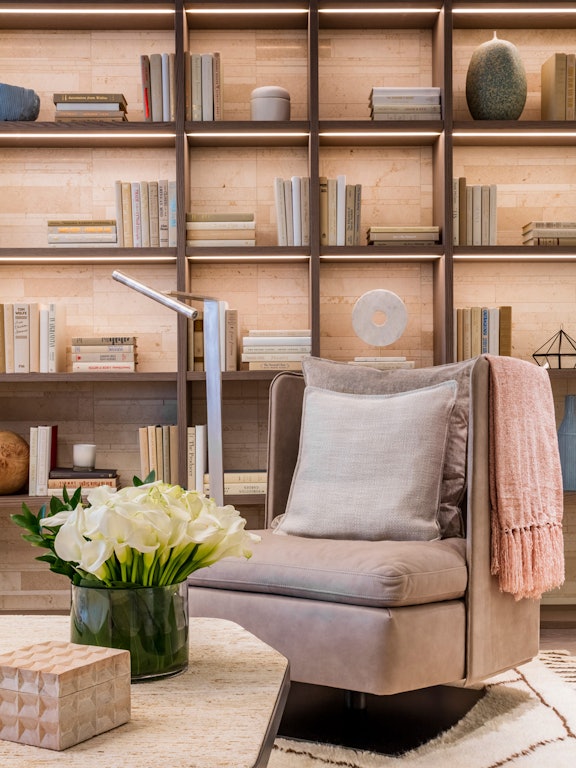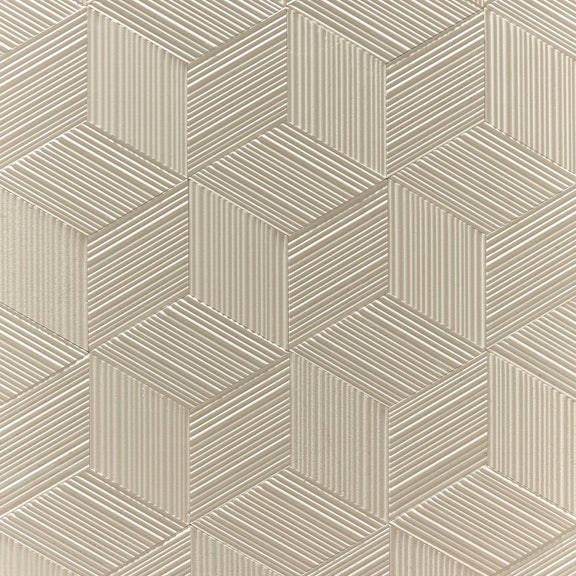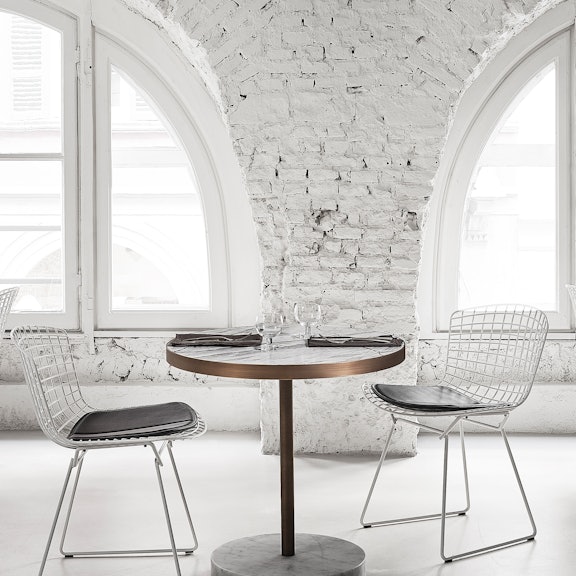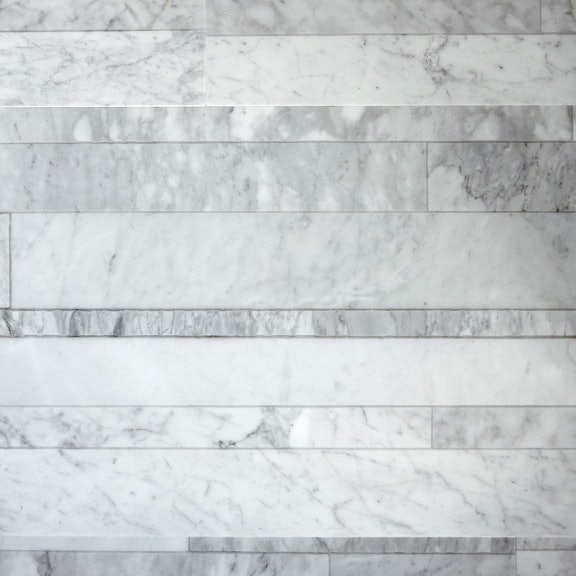Salvatori and its commitment to sustainability: a union lasted for almost fifty years.
03.2022
Discover our commitment to respecting resources.
Sustainability at Salvatori: from the origins to the challenges of the future
For decades our company has stood out for its commitment to innovation and development in the stone industry.
Over many years, in parallel with the progress of processing techniques and research into increasingly sophisticated design, the development of eco-sustainable practices to support our beloved planet has become an important part of our philosophy.
Let’s understand together how the drive for eco-sustainability has shaped the Salvatori path, from its origins to the present day, and the future the company is forging ahead of itself.
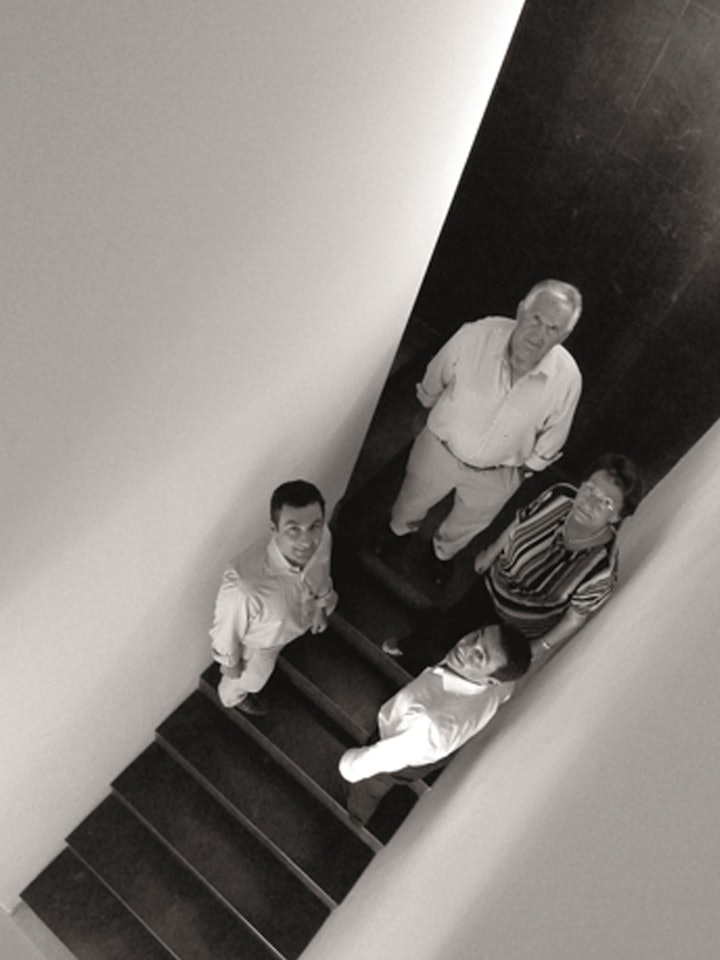
The origins of sustainability in the Salvatori company
In our company the concept of eco-sustainability and respect for the environment has deep origins.
In fact Salvatori was already trying to reduce its impact on the planet long before the consideration of environmental issues became commonplace. The first innovative work dates back to 1975: at that time it was discovered that the micro-dust of marble, which is created during the stone-cutting operations, mixed with the processing water and ended up flowing into the rivers.
Although marble is of natural origin, and therefore not in itself a pollutant, its dust can settle on river beds and prevent flora from photosynthesising, resulting in a dangerous chain reaction that undermines the entire ecosystem and the survival of animals.
So it was that Alfredo Salvatori, the father of our current CEO Gabriele, devised and developed a machine that, for the first time, included a closed-circuit filtering system: this provided the possibility of saving a precious commodity like water, with the additional advantage of not polluting rivers with the processing dust.
A double victory then, and the first spark of a drive for sustainability that has never stopped.
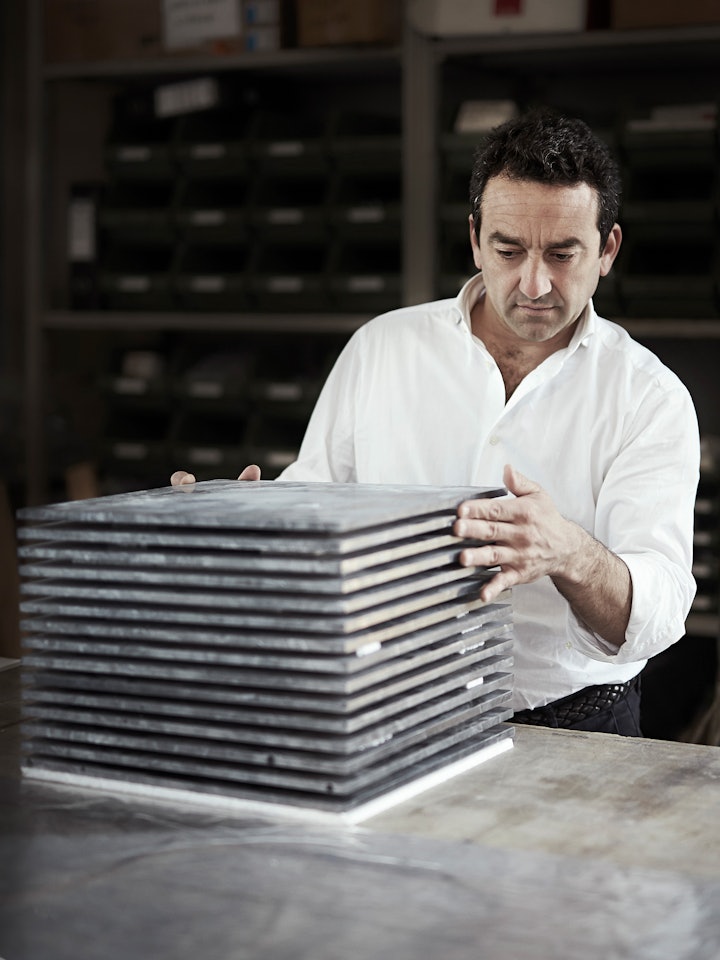
Sustainability today: Salvatori products
Innovation has always been our company’s hallmark since the very beginning: the desire to constantly improve our work and to never stop at the words ‘it’s not possible’ almost a mission.
This is why, since 1975, we have never stopped asking ourselves how we can make less of an impact on the environment and our resources through the work we do, right up to the design of sustainable products.
What attracted the attention of Gabriele, our CEO, was the huge amount of waste that marble processing produces: although it is a durable natural resource, the large amount of scraps created a great waste of this unique material, as well as a very costly disposal process, both in monetary and environmental terms.
In 2009, the company began to think about reusing those stones that were discarded not because of a structural defect, but simply as a result of marble processing.
While the long recessed walls built by our ancestors came to mind, they began to think about how to give life to the discarded stones using essentially the same method. Gabriele thought that by fitting the individual pieces, chosen by hand one by one, it would be possible to create beautiful slabs, which, when placed one on top of the other and pressed, would create a large block, to be cut and finished like any other block fresh from the quarry.
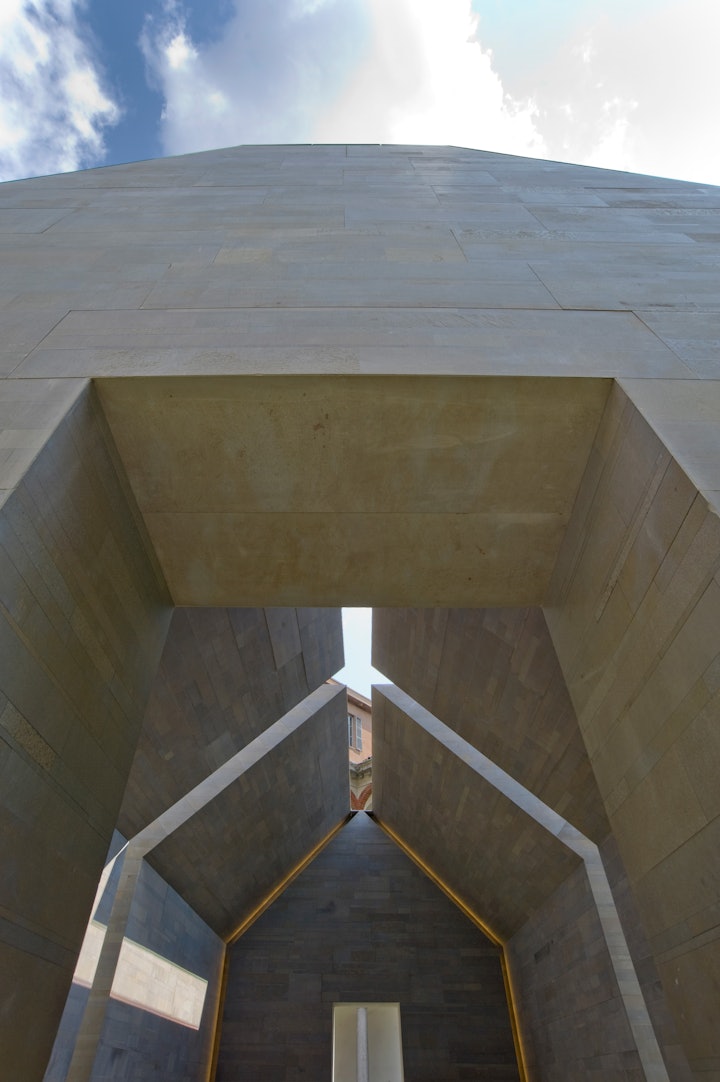
Continuous research and lengthy development have made it possible to understand how to fit the stones together and how to develop a resin that is both functional and ecological: instead of using an epoxy resin, which is effective but polluting, Salvatori has succeeded in developing a soy-based adhesive that is completely eco-friendly.
This is how Lithoverde®, the world’s first completely recycled stone surface, was finally launched in 2010. Immediately proving to be unique both for its extreme sustainability and for the elegance of its varied texture, the interest in and success of Lithoverde® was immediate, so much so that today our company’s scraps alone are no longer enough, and to complete all orders we also purchase production offcuts from neighbouring businesses.
A process that allows us not only to reduce the impact of our company, but also to recover a lot of material from the supply chain that would otherwise go unused.
This dual nature, which combines elegance and sustainability, has led to Lithoverde® winning many awards in Italy and abroad, and resulted in prestigious designers using it to give shape to their ideas and buildings: one example is the use of Lithoverde® by John Pawson, the famous British architect, to give life to his intriguing House of Stone.
From here on, Gabriele Salvatori’s desire to create and develop zero-impact products, which come to life from scraps and leftovers while maintaining a high level of design, has never stopped.
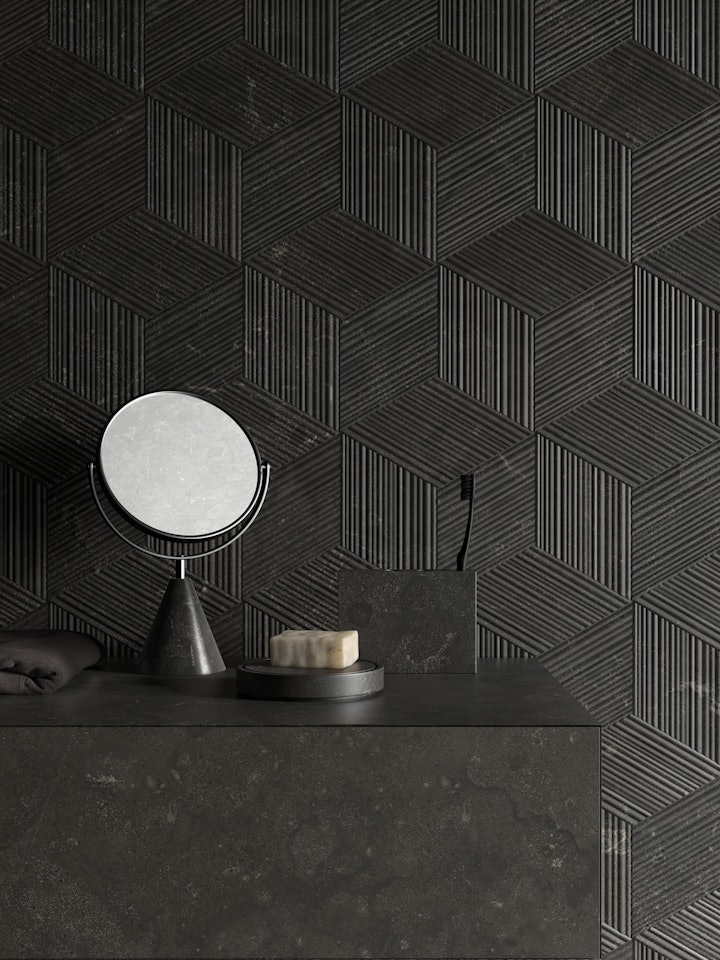
Another texture also originates from processing waste: Romboo.
Born from the scraps from the processing of Bamboo it has become Salvatori’s bestseller for almost twenty years. Each hexagonal marble chip of the Romboo texture is composed of 3 small rhombuses that form a truly unique three-dimensional finish with great impact.
In 2018, this drive for eco-sustainability experienced a further twist, indicative of a truly imperishable push for change. Gabriele Salvatori, in collaboration with his friend and designer Piero Lissoni, designed and developed a line of tables made from marble slabs left over in the warehouse: the Lost Stones collection.
The idea was to use the technique of Kintsugi, an ancient Japanese technique that involves repairing broken objects using precious metals, such as gold and silver, to give the object a new life while ensuring it does not forget its past.
This technique, and the innate resilience of natural stone, have made it possible to create truly unique coffee tables, reusing slabs from singular prestigious origins. In fact, driven by curiosity and research, Salvatori and Lissoni visited warehouses all over Italy, unearthing remnants of unique marbles, such as the one used by Mies van der Rohe for his famous Barcelona Pavilion, and those used for Notre Dame Cathedral.
Recycling and historical value became united in the creation of a truly unique and unrepeatable design product.

Not just products: sustainability in business
The commitment to sustainability, as we have said, has continued tirelessly since 1975 and permeates the entire company, not just on the side of production and product development: the interest of our business is to reduce its environmental footprint as much as possible, not just in marble, but also in the protection of other important resources, such as water and paper.
An eye for ecology and respect for the environment can be found, for example, in the packaging of our products. For years Salvatori has been committed to the development of packaging systems that are effective for transporting stone and at the same time environmentally friendly: with the awareness that it still has a long way to go, our company now ships around 40% of its production using packaging exclusively made from cardboard and recycled paper.
In addition, we have a collaboration with the University of Pisa for the creation of edible packaging, using only ingredients of natural origin.
A respectful and sustainable use of paper, for us, had to include a change in the whole company. As a first step, we stopped printing our catalogues on paper: all our products have digital brochures that are easy to consult and do not impact the planet.
However, when a retailer expresses the need for a paper brochure, we meet that request by printing the product entirely on recycled paper from FSC sources. We have even phased out bags made of this material in our shops, replacing them with more environmentally friendly and durable cotton shopping bags.
We believe that an environmentally friendly attitude is the basis for fostering the growth of a resource-friendly culture in both our employees and our customers.
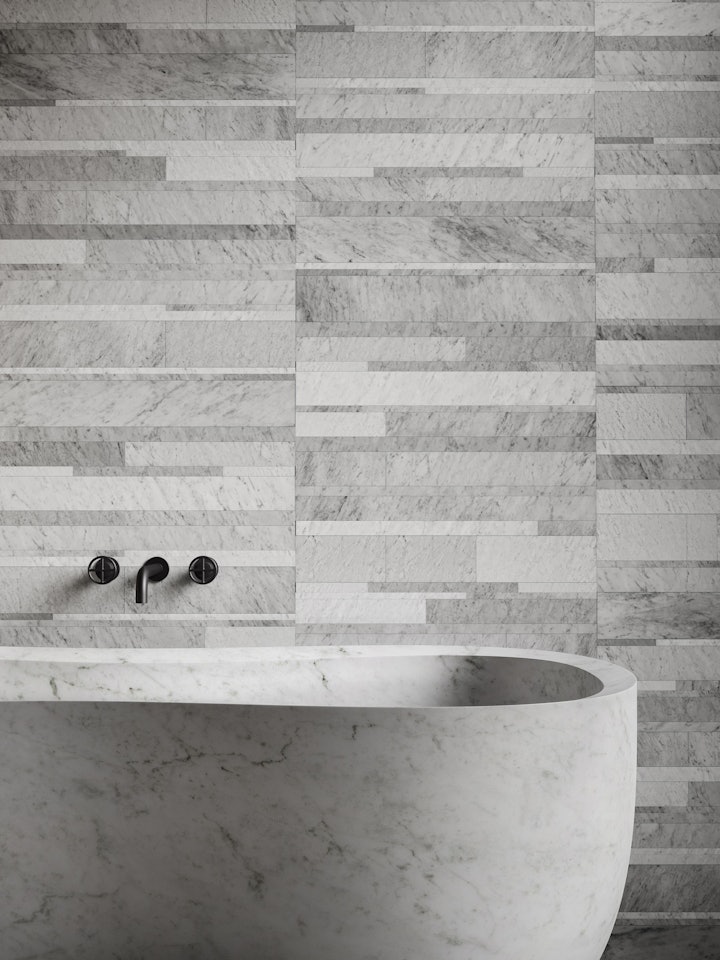
The future of Salvatori
Salvatori is determined to maintain its innovative approach to eco-sustainable development.
Natural stone is an environmentally friendly material by nature: durable, organic, and it doesn’t require polluting treatments to be processed.
It is up to the producers to constantly study and experiment innovative methods that allow the stone industry to respect the integrity of the ecosystem.
Salvatori is the only company in the sector to have an in-house team dedicated to development and research and, as we have already mentioned, it constantly collaborates with universities and professional studios for continuous experimentation in the field of ecological innovation, to achieve a carbon neutral impact for the entire company.
